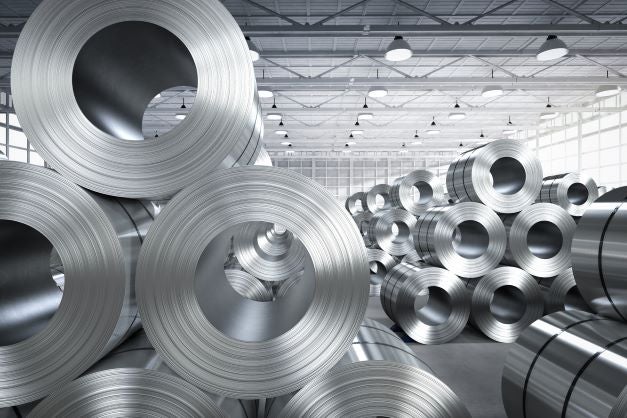
The BMW Group has signed an agreement with Salzgitter for delivery of low carbon steel which will be used to produce cars at the European plants from 2026 onwards.
With this move, the group is expanding its sourcing of low-carbon steel to two suppliers. The aim is to use low-carbon steel to meet over 40% of demand at its European plants by 2030, thereby reducing CO2 emissions by up to 400,000 tons per year.

Discover B2B Marketing That Performs
Combine business intelligence and editorial excellence to reach engaged professionals across 36 leading media platforms.
“This is an important step in substantially reducing CO2 emissions at source in the supplier network,” said BMW purchasing and supplier chief Joachim Post.
The group will also source steel produced using hydrogen and green power from northern Sweden for its European plants from 2025 onwards, reducing CO2 emissions by up to 95%. BMW presses in Europe process more than half a million tons of steel per year.
Because of its versatility, steel will continue to account for a large proportion of the car body and many components.
To lower CO2 emissions from steel production on a massive scale, Salzgitter is gradually switching to virtually carbon-free production. Electricity from renewable sources and its use in production of hydrogen from electrolysis are key elements of that. This green hydrogen will replace the coal currently used in the conventional blast-furnace process. This is made possible by so-called direct reduction plants, which use hydrogen to directly reduce iron ore to iron in the solid state. The solid iron produced in this way is then melted down with steel scrap in an electric arc furnace powered by renewable electricity.
Salzgitter AG plans to use this method to gradually reduce CO2 emissions from steel production to just 5% of what they originally were.
BMW Group established a closed-loop material cycle for sheet steel waste from its Leipzig plant with Salzgitter over five years ago. After delivering steel coils to the plant, Salzgitter takes away scrap and uses this material to produce new steel supplied to group plants.
Sheet steel waste from other European group plants is also either reused through a direct material cycle or sent back to the steel producer via steel traders and processed into new steel.
Up to 25% of the steel in group vehicles already comes from recycling loops. The group plans to increase its percentage of secondary steel in stages, to 50% by 2030.
Since this requires significantly less energy, CO2 emissions from production of secondary steel are an average of 50-80% lower than from primary steel.
BMW has also invested in an innovative method for carbon-free steel production developed by American startup Boston Metal, through its venture capital fund, BMW i Ventures. Boston Metal uses electricity for its new technology, which, by means of an electrolysis cell, produces molten iron that is later processed into steel. If electricity from renewable energies is used for this process, then steel production is carbon-free. Over the coming years, Boston Metal plans to expand the new method for steel production on an industrial scale.






